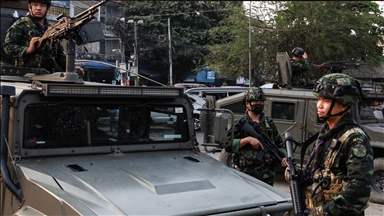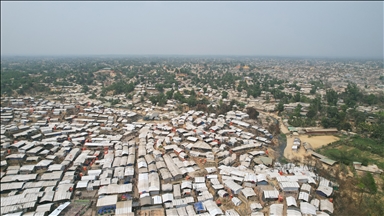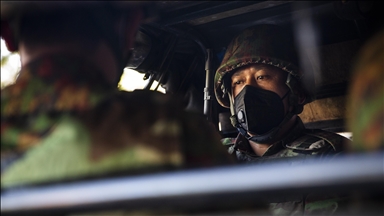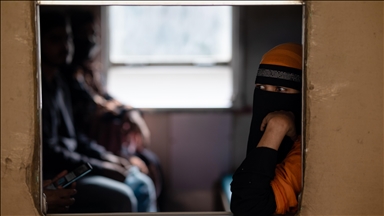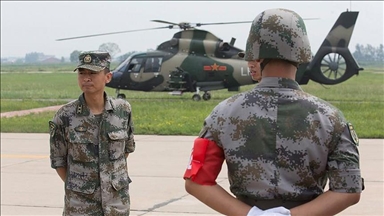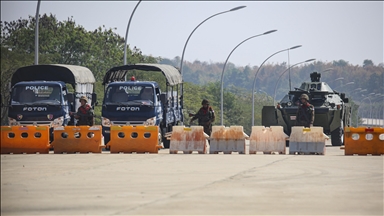Myanmar's ruling party suffers losses in by-elections
Suu Kyi’s NLD wins just 9 out of 18 seats, highlighting noticeable drop in party's popularity after a year in office
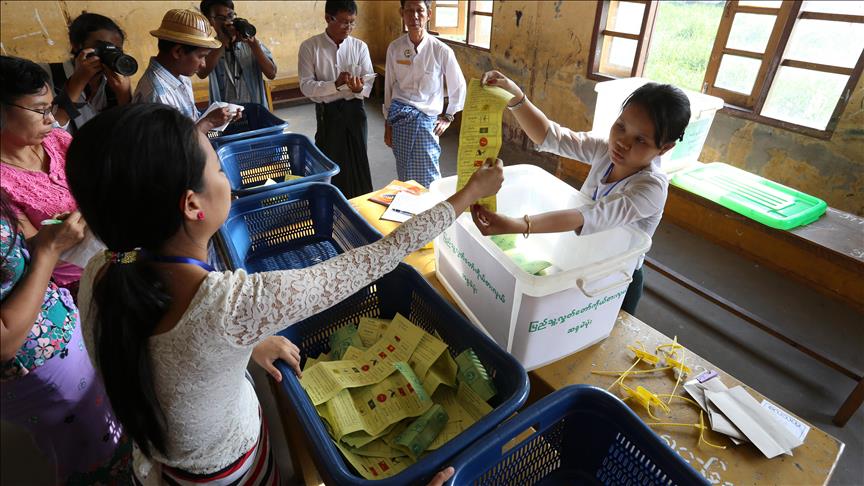
By Kyaw Ye Lynn
YANGON, Myanmar
Myanmar’s ruling party won just half of the contested seats Sunday in a parliamentary by-election, highlighting a noticeable drop in the party's popularity after just a year in office.
The country held its first by-election for 19 vacant parliamentary seats since the elected-civilian government -- led by de facto leader Aung San Suu Kyi’s National League for Democracy (NLD) -- took office last year.
According to the Union Election Commission, the NLD won 9 out of 18 contested seats, mostly in majority Burmese ethnic areas, while the main opposition party, the military-backed Union Solidarity and Development Party (USDP), won two seats.
The results showed Suu Kyi’s party losing its popularity among the public, comparing with its landslide victories in previous elections in 2012, 2015, and 1990 in which the NLD won at least 75 percent of the contested seats.
Since March last year, the NLD-led government has faced criticism for slow reform process in almost all sectors.
While the balance of power in the parliaments will not change even if the NLD had lost all 19 seats, analysts see it as a first test at the ballot box for Suu Kyi’s party after a year in office.
A major ethnic party -- the Shan Nationalities League for Democracy (SNLD) -- that won the largest number of seats after NLD in 1990 election, results of which were ignored by the former junta, also won six seats in northeastern Shan state.
An NLD candidate, however, was defeated by Aye Maung, chairman of nationalist Arakan National Party (ANP), in Ann Township in western Rakhine state for a seat in the lower house.
An ethnic party, All National Democratic Party (ANDP), won a seat in Myanmar’s eastern Kaya state.
A total of 94 candidates competed in the by-election to fill 19 vacant parliamentary seats caused by the appointment of lawmakers to Cabinet positions or the death of lawmakers.
Over two million voters, less than five percent of the country's population, were eligible to vote in the by-elections. However, the turnout was lower than the 69 percent seen in 2015 polls.
Civil society organizations criticized the Union Election Commission for its lack of public awareness campaigns.
Anadolu Agency website contains only a portion of the news stories offered to subscribers in the AA News Broadcasting System (HAS), and in summarized form. Please contact us for subscription options.


